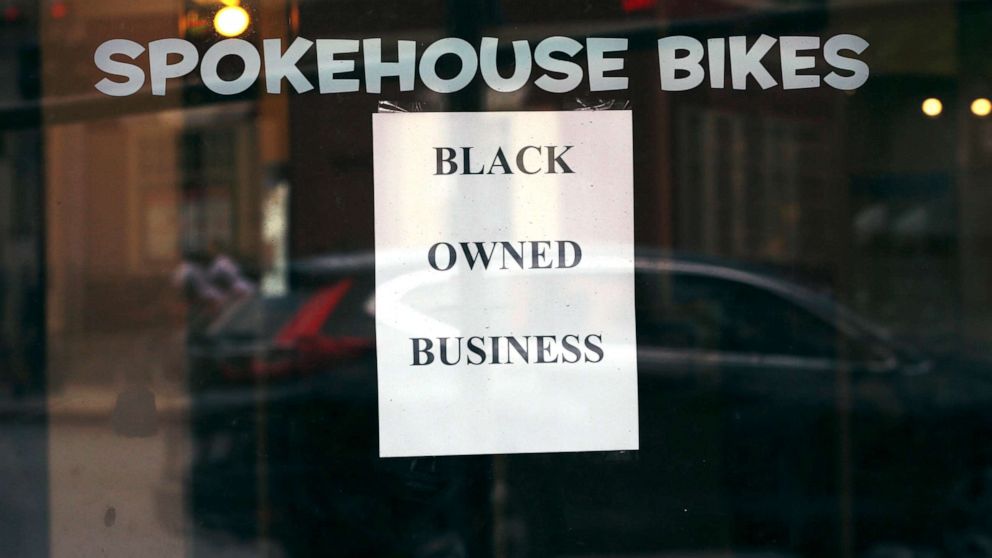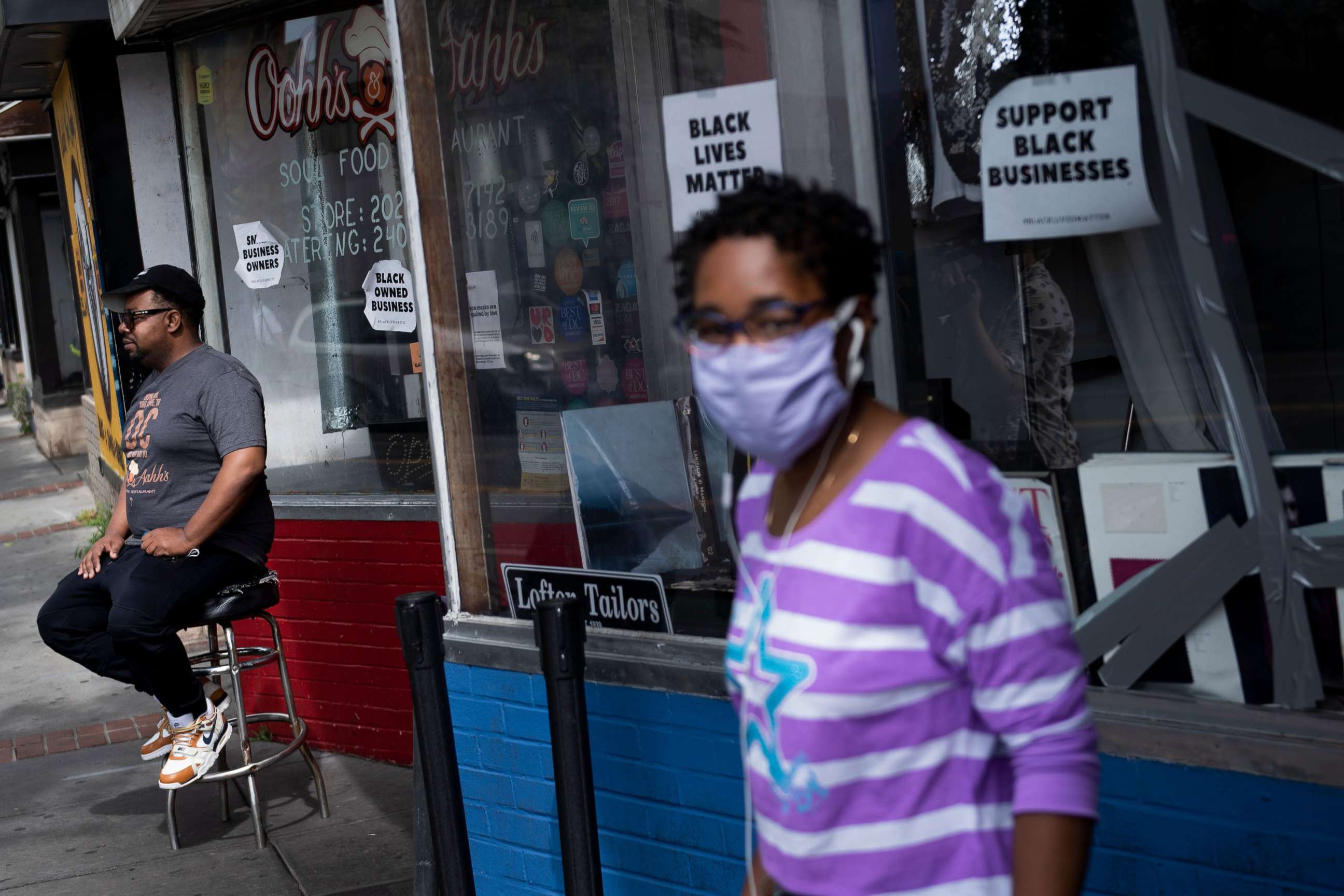Black and white applicants treated differently when seeking small business aid: Study
The study found Black applicants faced more challenges than white ones.
A new study out Wednesday found a disparity in how Black and white loan applicants were treated when seeking help for small businesses during the coronavirus pandemic.
The study by the National Community Reinvestment Coalition used a match-pair "mystery shopper" test, where a Black and a white applicant with nearly identical business profiles and strong credit histories would contact the same bank. In 27 of the 63 cases, white business owners received more favorable treatment than the Black business owners.
Sterling Bone, one of the study's authors and a professor of marketing at Utah State University, said in an interview with ABC News that one of the goals was to measure how often bank representatives offered applicants the Paycheck Protection Program.
"From a research standpoint, the pandemic provided a significant market shock in the environment," he said. "One area of interest in our work is to understand how these market shocks affect all individuals, particularly those that are of minority backgrounds."
"We find troubling patterns that that loan program, that PPP program, was not offered equally across our test groups," he added.
The study, which is small and has not been peer-reviewed, was conducted from April 27 to May 29. Applicants contacted 17 different financial institutions in the Washington, D.C., area.
At 13 of those banks, there was at least one case where Black and white applicants were treated differently. They received different treatment in how much bank representatives encouraged them to apply for loans, the products they were offered and the information they received.
The program has been a major part of the government's response to the economic impact of the coronavirus pandemic. The second round of PPP funding became available the same day the study began.

The study highlights one example where a bank representative turned away a Black applicant because he did not have an account at that bank. A representative from the same bank encouraged a white applicant in the same situation to open an account and offered to send him PPP loan materials.
"So the Black customer already doesn't realize they're being discriminated against," said Anneliese Lederer, one of the study's authors and the director of fair lending at NCRC. "They realize this, they said, 'OK, fine, they can't be helped. I'm not a customer.'"
"But we look at the test and totality you see that that's not what's happening," she added. "That's a double impact; you have this discouragement, and then you also have the encouragement of the white tester, by saying, 'This is what you can do if you join us.'"
In another case, a bank told both the Black and the white applicant that it had put a hold on all business products due to the surge in PPP loan applications. The Black applicant received no additional information, while the white applicant received information about the business products the bank offered and was encouraged to call back.
"It shows that borrowing while Black is still a hazard," said Jesse Van Tol, the CEO of the NCRC, the study's sponsor.
"There still exists discrimination within banking and that even with a government loan program, which is fully guaranteed and backed by the government, there's almost no risk for the financial institution making the loan, that even still we see discrimination in terms of treatment," he added.

Of the groups studied, Black women received worse treatment in 59% of cases where the study determined that applicants had been treated differently. None of the Black female applicants were encouraged to apply on the basis that they qualified for a loan.
Both Black and white women received less information about PPP loans than men.
The study made both government and industry recommendations on how to lessen this racial disparity. It calls on the Consumer Financial Protection Bureau to implement a rule that would require the program to collect demographic information on loan applicants.
"Businesses are hurting, businesses are closing. We're seeing obviously a heightened level of vulnerability among our minority business communities," said Bone. "We need to do our part in the policy arena, in the research area, to bring this data and information to life so that hopefully, together with our bank partners, we can improve access to capital for all business owners."




